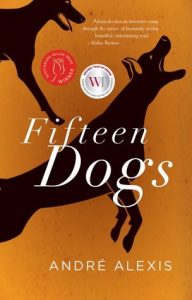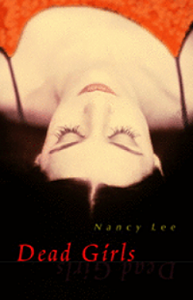Dear Reader,
I am Stephanie, an English Literature and History double major in my final semester here at UBC. It has been quite a journey. One of the most significant takeaways from my years studying at UBC is that narratives should always be taken with a grain of salt. Somebody out there is ready to tell a new perspective-changing story at a moment’s notice and being stuck in a singular mindset is not going to stop change. At all. That being said, ENGL 372 is going to redefine the definitions of home, nation, and its historical connections to storytelling. Colonization has erased, excluded, and pointedly overwritten indigenous storylines and truths in order to create a European definition of Canada. A description that can still be found in contemporary notions about Canada and the ways the nation should be defined. ENGL 372 explores the different forms of storytelling and the power of stories by confronting moments in time where Indigenous traditions are combatted by European violence.

Fifteen Dogs by André Alexis
My experience with Canadian Literature is few and far, but my absolute favourite novel of all time is Fifteen Dogs by André Alexis. It is a novel about two Greek gods giving human intelligence to a selection of fifteen dogs as a part of a wager to determine the parameters of human happiness. It is an exciting spin on the study of the human condition, one which I absolutely adore. I highly recommend it to dog lovers and those who are a little curious about life.

Dead Girls by Nancy Lee
Another text I have really enjoyed is Dead Girls by Nancy Lee. It is a collection of short stories that are centred around the disappearance of 60 women from the Downtown Eastside here in Vancouver. The stories contain considerably dark themes around women and the way they interact with their lives.
In terms of this course, I hope that it will open the floor for discourse about racism and the effects of the colonial legacies left behind. For example, how much of the recent incident involving an elderly man taking his twelve-year-old granddaughter to BMO are remnants of a colonial legacy? What are the effects of this news article on social thinking? Have stories been manipulated by the institutions of power to present particular narratives that have been approved by said institute of power?
I am looking forward to exploring the different facets of storytelling with you!
Cheers,
-Steph
Works Cited
Acevedo, Melanie., Photonica, and K.T. Njo. N/A. N/A, Dead Girls, Nancy Lee, McClelland & Stewart, 2002, front cover.
CBC Books. “Fifteen Dogs.” CBC Books, https://www.cbc.ca/books/canadareads/fifteen-dogs-1.3972138. Accessed 10 January 2020.
Lee, Nancy. “Dead Girls.” Nancy Lee, http://www.nancyleeauthor.com/dead-girls. Accessed 10 January 2020.
Paulson, Ingrid. Fifteen Dogs. N/A, Fifteen Dogs, André Alexis, Coach House Books, 2015, front cover.
Sterritt, Angela. “Indigenous grandfather and 12-year-old handcuffed in front of Vancouver bank after trying to open an account.” CBC News, https://www.cbc.ca/news/canada/british-columbia/indigenous-girl-grandfather-handcuffed-bank-1.5419519. Accessed 10 January 2020.

Hi Stephanie,
As a fellow English double major (but with political science instead of history) I was really interested in the ways in which you tied stories and narrative to culture and history, and the ways in which the western colonial narratives that have been perpetuated have directly tied into the ways in which indigenous people in Canada are currently mistreated. I would like to add to your discussion the article where the Indigenous man was arrested for trying to open a bank account by saying that this article resembles other patterns of racial and ethnic violence enacted by colonial powers. Often times notions relating to marginalized groups being seen as “not belonging” in certain spaces is subconsciously established through overarching cultural narratives, and this pattern is often re-enforced through violence. I hope that through our class discussions we can continue to discuss the effects colonial narratives have on current day indigenous people and how we might challenge them.
-Sophie